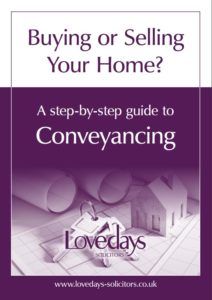- Home
- Personal Services
- Advice for Employees
- Conveyancing
- Dispute Resolution
- Boundary Disputes
- Dealing with Rent Arrears
- Japanese Knotweed Claims
- Landlord and Tenant Disputes
- Landlord Harassment & Illegal Eviction
- Negligence Claims Against Builders & Developers
- New Build Property Disputes
- Noisy Neighbour Disputes
- Personal Debt Collection
- Property Misrepresentations Claims
- Rights of Way Disputes
- Section 21 No Fault Evictions
- TOLOTA Claims
- Tree & Hedge Neighbour Disputes
- Divorce and Separation
- Family Law
- Lasting Power of Attorney
- Licensing
- Probate Law
- Trusts
- Wills
- Business Services
- Reviews
- Make An Enquiry
- Cost and Service Information
- About Us
- Contact Us
Commercial Property Transactions
Buying any type of property can be a difficult and stressful process, but commercial property transactions can be even more complicated. Whether buying, selling or leasing, there is a lot of work involved in understanding the property and any terms around it, meaning that vast amounts of legal knowledge is needed to understand the situations and find solutions for them.
As a commercial property is often linked to your livelihood, there can be a lot at risk, and so it is important to navigate these transactions carefully in order to ensure that you make all of the right choices for you and your business. Our solicitors can offer you full and honest legal advice to make sure that you are fully informed throughout the entire process and can avoid many of the common pitfalls that can lead to costly mistakes.
We take a lot of the hard work out of the process for you, in order to ensure that your commercial property transaction is smooth, transparent and free from delays or headaches.
Get Support Today
If you're considering a commercial property investment, don't navigate the complexities alone. Reach out to Lovedays Solicitors for expert guidance and support. Our experienced team is here to ensure your transaction is smooth, transparent, and successful. Contact us today for a consultation and take the first step towards securing your investment with confidence.
Understanding Commercial Property Transactions
Commercial property is often seen as a good investment, whether you plan to run a business of your own from it or lease it out to someone else.
However, commercial properties can be subject to some much more complicated issues than residential properties, and therefore the transactions require a lot more specialist knowledge. It is important to find the right property in order to avoid issues that could then hamper your business plans further down the line.
A solicitor who is an expert in commercial property transactions can guide you through the process, identify potential issues and help to devise solutions for them.
A commercial property can be any property that a business operates from, and so it has an extremely wide scope. This can range from office buildings, hospitality, retail spaces, industrial sites, and even property developments, as they are all capable of making a profit for the owner.
As commercial property can refer to a number of different things across a range of sectors, there can be a lot of laws and regulations that will affect it.
These can relate to typical property issues such as ownership, boundaries and planning permission, but also restrictions on what businesses can be operated from the property, the ways in which it can be used, and debts that might have been accrued by a previous owner.
You will need to understand the classification of the building, as this is likely to affect what business can be run out of it and even what hours it is allowed to operate. This is important to understand even if you intend to lease the property, as it may limit who your tenants can be.
Dealing with the finance for a commercial property transaction can also be a more complicated business, and lenders are likely to require much more information about you and the property that you wish to invest in than you might normally expect.
The Transaction Lifecycle
Stage 1: Identification & Origination
When looking at purchasing a commercial property, you first need to identify the right one. This can be done by checking the typical real estate websites, but it can also be useful to conduct other types of research. It can be useful to talk to surveyors in order to identify whether they are aware of any opportunities for new premises, as well as registering your requirements with a Chartered Surveyor who can keep you informed about new properties as soon as they take one on.
It is important to remember that finding the perfect commercial property is unlikely to happen overnight as the turnover is not as high as in the residential market, and so you need to set aside plenty of time to conduct an active search and then go through the buying process.
Stage 2: Underwriting
Once you have identified one or more properties that could present good investment opportunities, it is important to then go through an underwriting process. This will help you to determine how much of an investment the property really is by looking at its future prospects.
An underwriter will look at the amount of risk that will be involved in investing in the property by ordering a full appraisal of the property itself and conducting a credit report. They will consider the type of property and its value, as well as looking at its vacancy rate and that of other properties in the area. They will also consider the credit score of the buyer, their credit history, net worth and bank statements to establish the levels of risk involved in financing the loan for the property and insuring it.
This can help to narrow down the search by identifying the properties which are likely to offer the best returns and be the more secure investments.
Stage 3: Due Diligence
When a decision has been made on the commercial property that you want to invest in, then your solicitor will need to undertake a process of due diligence. This involves conducting a number of checks to validate the condition of the property and its legal standings.
These checks can vary depending on the type of property and its location, but they will often include conducting a full valuation of the property, based on similar properties in the area, the current market, demand for the business and the type of tenants that it is likely to attract.
There will also be checks relating to any planning or redevelopment proposals in the area which could affect the property both positively and negatively and examine how adaptable the property is. The condition of the property is very important, and it is therefore vital to consider its current state of repair through professional surveys and whether there are any significant defects that might be an issue.
You should also consider how the building is likely to be used and whether there are any restrictions or covenants in place that might hinder this. A property title report will need to be compiled and any ongoing leases should also be taken into consideration.
Stage 4: Closing
After any action has been taken to resolve any issues that might relate to the property, it is important to close the transaction.
At this stage, it is necessary to finalise all of the transaction details, including putting funds into escrow in order to safeguard the interests of all parties. It is important to ensure that all legal entities involved in the transaction have the authority to buy or sell the property, in order to ensure that the property transaction is legitimate and legal.
Once all searches have been completed, a contract will need to be drafted which will detail all of the terms of sale, including the purchase price, contingencies and timelines. One these contracts have been signed and exchanged; the sale is legally binding.
There will be a number of documents that will need to be collected in order for the sale to be completed, including the deeds, any mortgage documents and any other important paperwork relating to the sale. When all of this has been finalised, the sale can be completed, and funds can be released from escrow.
Stage 5: Asset Management
Once the transaction is complete, it is important to look at post-acquisition management in order to not only maintain the value of the property, but to enhance it as well. This means putting together a robust plan to ensure your property can increase its capital value and provide a successful level of income. This might be through looking at your own business plans for the property, or by leasing it to business tenants. It is important to look at what the current market trends are and understand the level of demand in the area in order to determine what the best and most profitable plan is likely to be.
It can be important to look at the building itself to identify any opportunities that might enhance its overall value, as well managing tenants, making use of rent reviews and considering the terms for lease renewals to ensure that your commercial property investment is always maximising its full financial potential.
Get Support Today
If you're considering a commercial property investment, don't navigate the complexities alone. Reach out to Lovedays Solicitors for expert guidance and support. Our experienced team is here to ensure your transaction is smooth, transparent, and successful. Contact us today for a consultation and take the first step towards securing your investment with confidence.
Legal Challenges in Commercial Property Transactions
Commercial property transactions are complex as there can be a number of legal hurdles that often seem to stand in the way. It is therefore important to understand what these are at the earliest possible stages in order to then work on solutions that can deal with them.
Problems often arise when it comes to the boundaries of a property, as there are often disputes on where they should lie and who is responsible for them, but this can usually be overcome when a full title search is carried out. This is also useful when trying to establish the owner of the property, as it will show which legal entities have the rights to sell the property, whether the land is registered or not.
It is also important to be aware of any planning and development issues in relation to the property. There may be planning applications nearby that could affect your plans or the value of the property, or there may be restrictions on the way in which you can develop the building. Many commercial properties will be classified as being for a particular purpose, and so you may need to look at applying for a change of use if your plans do not fit in with this.
If the building is currently leased, then there may be issues with the existing tenants. It is important to look at the lease agreement that is in place, and have a full understanding of any break clauses, rent reviews or lease renewal plans that can help you to get things back on track.
Many of the legal challenges that you might encounter can be identified at the due diligence stage, and so it is important to use the services of a solicitor who is an expert in commercial property transactions, like those at Lovedays Solicitors.
There are not only many factors that need to be looked at in great detail, and an experienced solicitor will be able to suggest solutions to many of the problems that they might find.
By compiling accurate documentation, it is much easier to understand and overcome the challenges that you may face. This can be achieved by negotiating with the seller or by applying to make formal changes relating to the use of the building or to remove any debts that might be attached to it.
How Lovedays Solicitors Can Assist You
Lovedays Solicitors have been providing legal assistance in the Derbyshire area since 1905, making us experts in our field. We have a vast understanding of commercial property law, and have many solicitors with years of experience in this sector. This means that we are able to offer you a full legal service in relation to your commercial property transactions, overseeing every step to ensure that your investment is safe, secure and legal.
As we understand the local area as much as we understand the law, we can help you to overcome any challenges that you might face and have good working relationships with many property professionals across the county.
We can perform a full due diligence service, including title searches, planning checks, property searches and financial assessments, putting together detailed reports that can give you a full and transparent picture of the property you are investing in.
We have handled a great number of commercial property transactions over the years, and our helpful and friendly team are ready and waiting to assist you with yours. We provide a thorough and in-depth service, and our experience and expertise mean that we can offer you thoughtful and innovative legal advice at every stage to help you overcome any challenges that you may face and maximise the potential of your investment with as little hassle as possible.
Conclusion
There is no easy way to complete a commercial property transaction, as there are so many legal processes and challenges that need to be considered along the way. That is why it is crucial to employ the services of a specialist solicitor who can help you to navigate the process.
They can ensure that your purchase goes ahead as smoothly as possible by conducting full and thorough research. This allows you to have a greater understanding of the property itself, the earning potential that it has and any problems that you might face in owning it.
Once you are able to have a complete overview of the situation, your solicitor can take you through the solutions that are open to you, giving you expert legal advice to help make sure your investment is the right one for you.
At Lovedays Solicitors, we are dedicated to the needs of our clients and offer a full and professional service at all times. Our specialist solicitors will guide and support you, helping to ensure that your investment is successful.
Get Support Today
If you're considering a commercial property investment, don't navigate the complexities alone. Reach out to Lovedays Solicitors for expert guidance and support. Our experienced team is here to ensure your transaction is smooth, transparent, and successful. Contact us today for a consultation and take the first step towards securing your investment with confidence.
Frequently Asked Questions
It is important to start by putting a plan together for your business to help you outline what you need from a property and the ideal location for it. You can then talk to local estate agents about what is currently on the market. Your solicitor may also be able to reach out to surveyors in the local area to find out more about the properties that they are working on.
It is possible to change the use of a commercial property but there can be restrictions in place. Each property will have its own classification relating to the business practices that can legally take place there and you will need to apply for planning permission in order to change this. Much of this information will be uncovered during the due diligence process.
It is usually possible to lease a property to a business, but it is important to check whether there are any existing tenants in the building or if there are any covenants which might prevent this. You can then draft a commercial lease agreement that outlines all of the terms and conditions for the proposed lease.
- Understanding Commercial Property Transactions
- The Transaction Lifecycle
- Stage 1: Identification & Origination
- Stage 2: Underwriting
- Stage 3: Due Diligence
- Stage 4: Closing
- Stage 5: Asset Management
- Legal Challenges in Commercial Property Transactions
- How Lovedays Solicitors Can Assist You
- Conclusion
- Frequently Asked Questions
Get Support Today
If you're considering a commercial property investment, don't navigate the complexities alone. Reach out to Lovedays Solicitors for expert guidance and support. Our experienced team is here to ensure your transaction is smooth, transparent, and successful. Contact us today for a consultation and take the first step towards securing your investment with confidence.

Free Guide
If you don’t know your leasehold from your freehold, then get our Free Conveyancing Guide. It contains details about the steps you will need to take with any property transactions. The Guide giving you detailed guidance on what your lawyer will be doing for you and what to look out for.


Lovedays Solicitors, Brooke-Taylors Solicitors, Potter and Co Solicitors and Andrew Macbeth Cash and Co Solicitors are the trading names of Derbyshire Legal Services Limited which is a company registered in England and Wales under company number 08838592. Registered office Sherwood House, 1 Snitterton Road, Matlock, Derbyshire, DE4 3LZ.
Authorised and Regulated by the Solicitors Regulation Authority under SRA ID number 637916.
-
01629 56660
-
Sherwood House
1 Snitterton Road
Matlock
Derbyshire
DE4 3LZ
© Copyright 2019 Derbyshire Legal Services Limited | Website by WebWorks